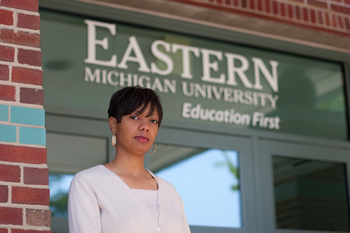Quiet Surrender in Precedent-Setting Counselor Conscience Case “Permitting secular exemptions but not religious ones and failing to apply the policy in an even-handed, much less a faith-neutral, manner to Ward.” — 6th Circuit Court of Appeals
Media Contact
Ryan Colby 202-349-7219 media@becketlaw.org
Additional Information

Eastern Michigan University quietly threw in the towel on Monday, settling its lawsuitwith its former student Julea Ward. The University had expelled Ward from her graduate counseling degree program when she sought to use a patient referral mechanism that other student counselors were allowed to use. Her sin? She wanted to refer patients for religious reasons: she did not feel that she could in good faith provide same-sex couples advice on their relationship because she believed those relationships to be sinful. The problem for the University was that it allowed student counselors to refer patients for all sorts of reasons and Ward violated no written University policy; in short, Ward was being targeted. The University’s punishment of Ward earned it a rebuke from the federal Sixth Circuit Court of Appeals in Cincinnati, which held that the University was “permitting secular exemptions but not religious ones and failing to apply the policy in an even-handed, much less a faith-neutral, manner to Ward.” This reasoning followed the Becket Fund’s amicus brief filed in the appeal.
Ward v. Wilbanks is another example of government officials using the power they have to try to force a kind of ideological conformity onto those who dissent from academic pieties. The University’s decision to give up, pay Ward, and issue her a clean academic record indicates that the First Amendment is still a significant bulwark against the bureaucratic urge to squelch diversity of ideas. But it is a bulwark that still requires defenders.